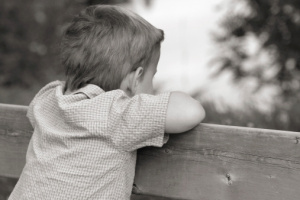 I have practiced law for almost 15 years. As a collaborative divorce attorney and mental health professional, I fundamentally believe my non-adversarial approach is better for children. The outcomes protect children’s best interests and provides them the best opportunity to thrive in a future, bi-nuclear family. Research confirms this notion, but not until recently was my personal belief proven in my practice.
For the first time in my career, I had a potential client come into my office who was referred to me by her 12 year old son. This woman and her husband had decided to divorce and before starting the legal process told the children. They sat down their 12 year old son and 9 year old daughter and told them that mom and dad had decided to get divorced. Amongst the various reactions, their son asked “could you get divorced in the way Tommy’s parents divorced?” Their son said of all his friends with divorced parents (as expected, there are many) he noticed that there was something different about Tommy’s parents and the way they divorced. They were different, he told his parents, and that was what he wanted.
At their son’s request, the parents reached out to Tommy’s parents to learn more. Tommy’s parents had had a collaborative divorce. Despite great challenges emotionally and financially, Tommy’s parents had put their greatest interests ahead of individual gain and brought their best selves to the divorce process. The outcomes reached were unique and tailored to provide the very best for everyone in Tommy’s family. Tommy probably didn’t know his parents “did divorce” differently. Tommy just experienced what he experienced…but his friend noticed. I represented Tommy’s dad in his collaborative divorce and I am so grateful that kids notice how well Tommy is doing.
This experience is a reassuring and lovely example of the far-reaching benefit of collaborative law. It shows that children really do notice and, more importantly, the community at large can see how children of divorce can thrive … If the divorce is done well.
Kids notice.
I have practiced law for almost 15 years. As a collaborative divorce attorney and mental health professional, I fundamentally believe my non-adversarial approach is better for children. The outcomes protect children’s best interests and provides them the best opportunity to thrive in a future, bi-nuclear family. Research confirms this notion, but not until recently was my personal belief proven in my practice.
For the first time in my career, I had a potential client come into my office who was referred to me by her 12 year old son. This woman and her husband had decided to divorce and before starting the legal process told the children. They sat down their 12 year old son and 9 year old daughter and told them that mom and dad had decided to get divorced. Amongst the various reactions, their son asked “could you get divorced in the way Tommy’s parents divorced?” Their son said of all his friends with divorced parents (as expected, there are many) he noticed that there was something different about Tommy’s parents and the way they divorced. They were different, he told his parents, and that was what he wanted.
At their son’s request, the parents reached out to Tommy’s parents to learn more. Tommy’s parents had had a collaborative divorce. Despite great challenges emotionally and financially, Tommy’s parents had put their greatest interests ahead of individual gain and brought their best selves to the divorce process. The outcomes reached were unique and tailored to provide the very best for everyone in Tommy’s family. Tommy probably didn’t know his parents “did divorce” differently. Tommy just experienced what he experienced…but his friend noticed. I represented Tommy’s dad in his collaborative divorce and I am so grateful that kids notice how well Tommy is doing.
This experience is a reassuring and lovely example of the far-reaching benefit of collaborative law. It shows that children really do notice and, more importantly, the community at large can see how children of divorce can thrive … If the divorce is done well.
Kids notice.
Two Paths, One Decision: The Divorce Dilemma
Emily and Daniel were in love. Their love story had once been the envy of the neighborhood—a whirlwind romance that blossomed into a marriage filled with laughter, shared dreams, and whispered secrets. But as the years went by, cracks appeared in their fairy tale....



